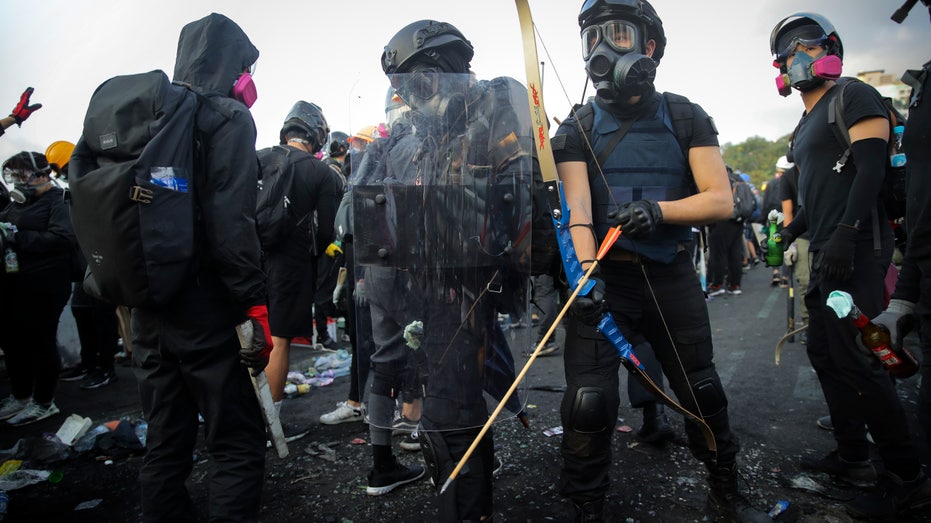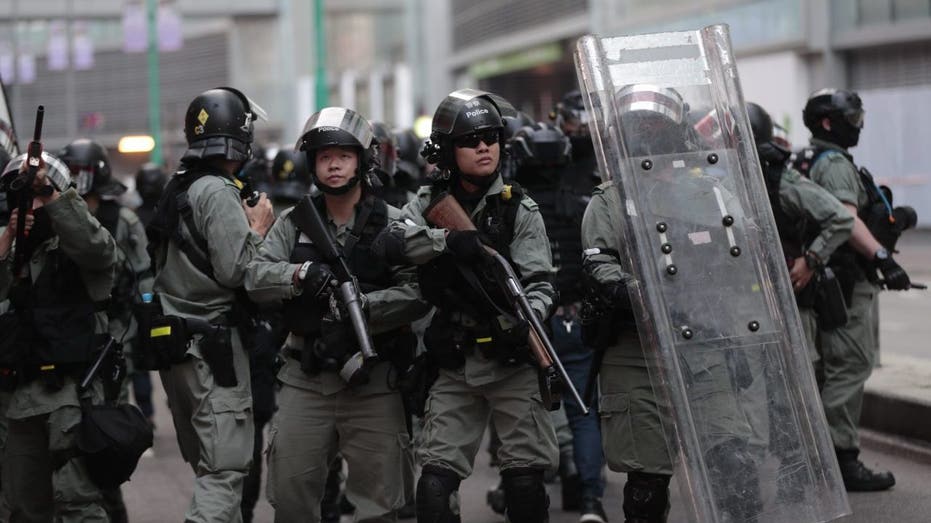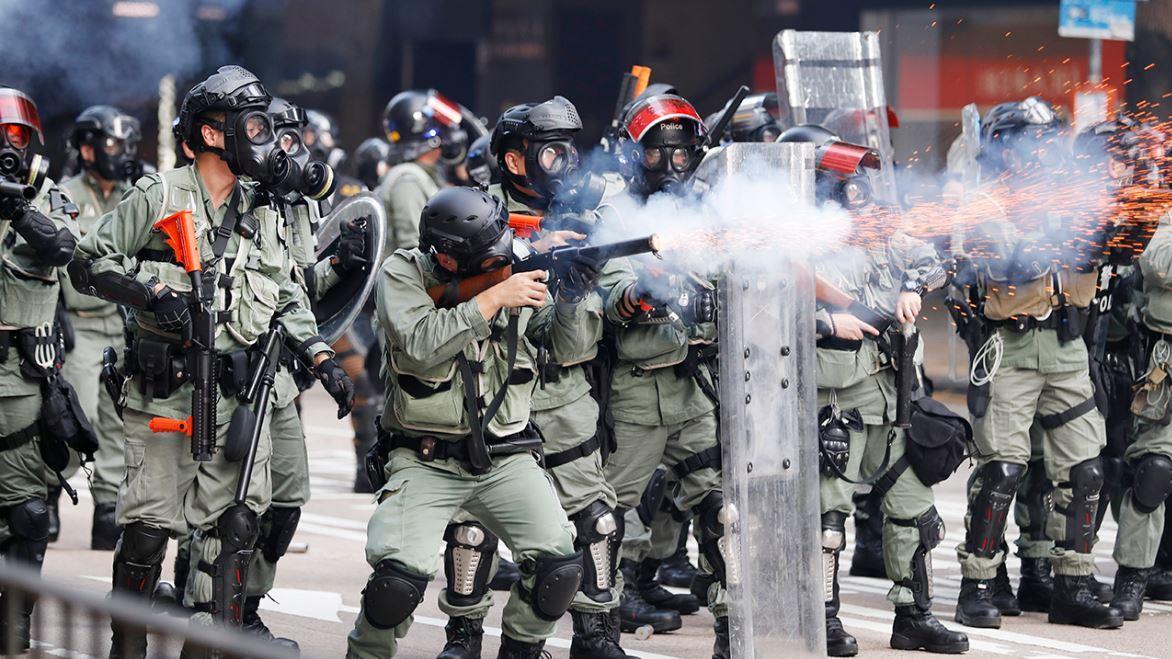Hong Kong endures more transit disruptions, campus violence
Hong Kong residents endured a fourth day of traffic snarls and mass transit disruptions Thursday as protesters closed some main roads and rail networks while police skirmished with militant students at major universities.
Police said protesters shot several arrows at them near Hong Kong Polytechnic University. None of the officers were injured, and six arrows were seized at the scene, police said.
Life in this city of 7.5 million has been strained as thousands of commuters have been unable to get to work or endured lengthy commutes.
The government appealed for employers to show flexibility. “For staff who cannot report for duty on time on account of conditions in road traffic or public transport services, employers should give due consideration to the circumstances,” a statement said.

Students with their homemade gears take their position outside the Chinese University of Hong Kong, in Hong Kong, Wednesday, Nov. 13, 2019. Protesters in Hong Kong battled police on multiple fronts on Tuesday, from major disruptions during the mornin
A business and high-end retail district in the center of the city was once again taken over by protesters at lunchtime, as it has been every day since Monday. Office workers watched from the sidewalks and overpasses as protesters littered the streets with bricks and other items to block traffic and police.
At one point, a group of police swooped in and kicked the bricks to the curb along one major thoroughfare, but the standoff continued.
GET FOX BUSINESS ON THE GO BY CLICKING HERE
The Education Bureau extended the suspension of classes for kindergarten to high school students until Monday. It ordered schools to remain open, though, to handle children whose parents need to send them to school.
At Polytechnic University, protesters shot an arrow at officers patrolling nearby, then threw flower pots from a height when other officers arrived. Police responded with tear gas, and protesters fired more arrows.
Protesters have hurled gasoline bombs and thrown objects off bridges onto roads below during clashes at campuses this week. The Chinese University of Hong Kong suspended classes for the rest of the year, and others asked students to switch to online learning.
Students at Chinese University, site of some of the fiercest clashes where students hurled more than 400 firebombs at police on Tuesday, have barricaded themselves in the suburban campus.
Early Thursday they used chainsaws to drop trees onto streets around the campus and prepared for a possible confrontation with police, who were not intervening.
Anti-government protests have riven Hong Kong, and divided its people, for more than five months.

Riot police take defensive position after an object was thrown at them in Hong Kong, Sunday, Nov. 10, 2019. Protesters smashed windows in a subway station and a shopping mall Sunday and police made arrests in areas across Hong Kong amid anger over a
A major rail line connecting Kowloon to mainland China was closed for a second day and five major underground stations were shut along with seven light rail routes, the Transport Department announced.
“Road-based transport services have been seriously affected this morning due to continued road blockages and damage to road facilities. In view of safety concerns and uncertain road conditions, buses can only provide limited services,” the department said.
One of the main cross-harbor tunnels connecting Hong Kong Island to Kowloon and the rest of the city was closed after protesters set some of the toll booths on fire Wednesday night.
Traffic was also disrupted because protesters have destroyed at least 240 traffic lights around the city.
CLICK HERE TO READ MORE ON FOX BUSINESS
The movement began in June over a now-withdrawn extradition bill that would have allowed criminal suspects to be sent to mainland China for trial. Activists saw it as another sign of an erosion in Hong Kong's autonomy and freedoms, which China promised would be maintained for 50 years under a "one nation, two systems" principle when the former British colony returned to Chinese control in 1997.




















